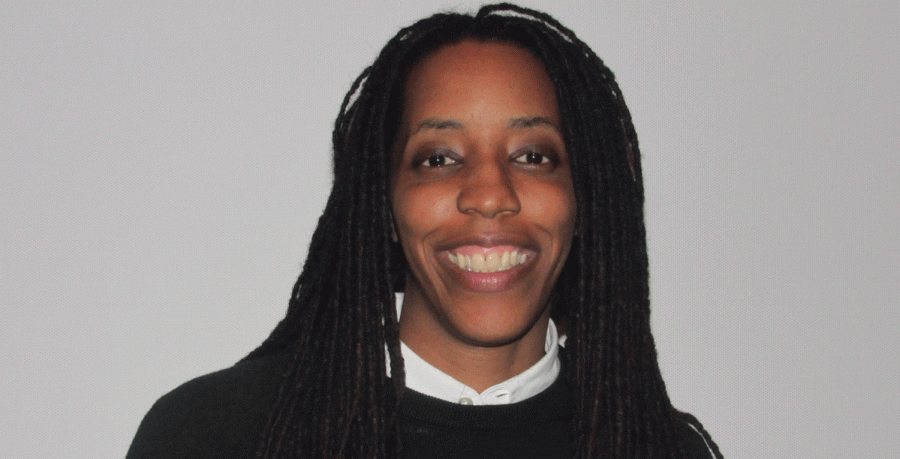Dr. Bettina Love Stresses the Value of Music in Society
Golden Auditorium was completely packed on Thursday, February 9 to see Dr. Bettina Love give her lecture titled “Creativity, Hip Hop Civics Education, Intersectionality and Black Joy.” Professor Mark Stern got the night rolling as he introduced senior Rachel Drucker, an education concentrator. Drucker talked about the history of the Race and Education lecture series and warned the audience of the danger of remaining isolated during these times. She encouraged everyone to stop avoiding each other and ourselves.
Love took the stage and immediately began singing and dancing to some of the backup music that was playing, and many audience members joined in. Love began her lecture with an explanation about her work and her goals for the future. Love shared that she is constantly searching for a new way to understand freedom and struggle and often times is able to do this through music. She led the audience through the history of African American music on a map that National Geographic created. This map began with the griots who were traveling poets, artists and musicians typically from West Africa. The next stage of the map were slave songs. Love made sure to point out how incorrect it was to jump from griot music to slave songs, without any mention of the horrible history that had to occur in order for slave songs to be possible. She walked the audience through the ways in which white supremacy, hate and racism have been a direct response to the different styles of music that have occurred throughout the years. Love went on to discuss how, although it is constantly unappreciated by society, African American creativity has sustained itself for all of these years because of Hip Hop’s ability to bring people together.
Throughout her lecture Love also included many of her favorite Hip-Hop songs. After playing her favorite Kendrick Lamar song, she explained “Hip Hop has an obligation. It allows us to tell our stories. If you do not like it, it is ok, but you have no right to silence or dismiss it.”
For Love, she said how Hip Hop was life–changing for her. Music became a way that she was able to connect to other people and also connect to herself. It became a voice for a group of people whose voices were constantly being ignored. Love also shared her company and website that she has recently created called getfreehiphopcivics.com. This site allows for people, particularly young adults, to connect with one another, learn more about the world they are living in and volunteer in their own communities to help get other youth informed. Her website also encourages the use of social media as a space of protest and carefully lays out the best ways to do it. Love closed by reminding the audience of the power and creativity of art, and the ability we all have to create whatever our hearts tell us to.






